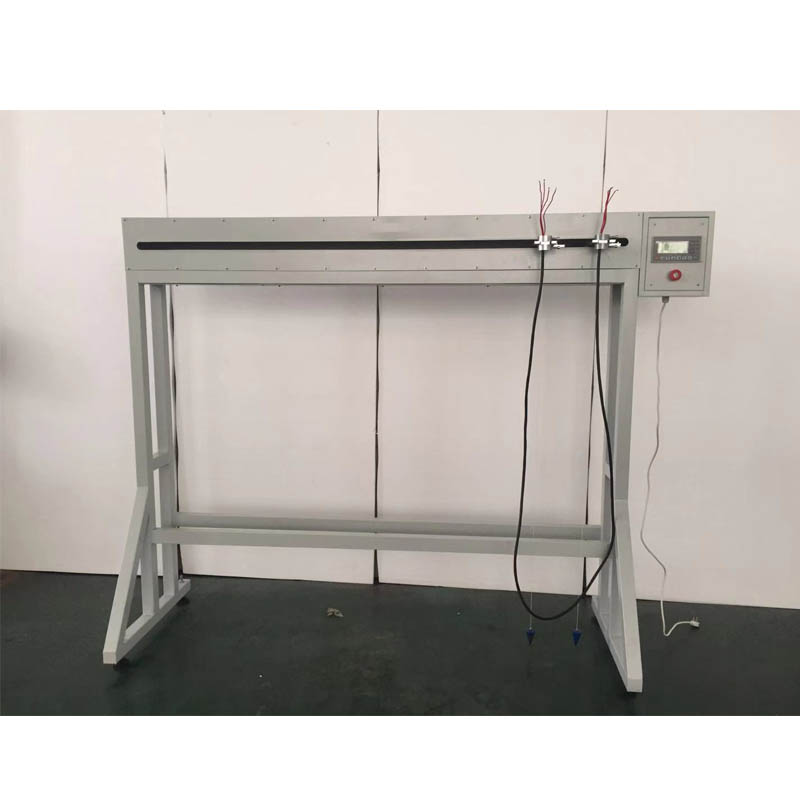conductor resistance constant temperature tester supplier
Understanding Conductor Resistance Constant Temperature Testers A Supplier's Perspective
In the realm of electrical engineering and materials science, the accurate measurement of conductor resistance is paramount. This has led to the development of sophisticated instruments known as Constant Temperature Resistance Testers. These devices play a crucial role in various applications, from quality control in manufacturing processes to research and development in laboratories. In this article, we'll explore the significance of these testers, their working principles, and what to consider when selecting a supplier.
The Importance of Measuring Conductor Resistance
Conductor resistance is a fundamental property that influences the performance of electrical and electronic devices. It is essential for ensuring the efficiency and reliability of circuits. Factors such as temperature, material type, and physical dimensions affect resistance, and measuring it accurately helps in understanding the behavior of materials under different conditions. This is particularly vital in high-performance applications where even the slightest variation in resistance can lead to malfunctions or failures.
What is a Constant Temperature Resistance Tester?
A Constant Temperature Resistance Tester is designed to measure the resistance of a conductor while maintaining a uniform temperature throughout the testing process. This is critical because resistance can vary significantly with temperature. By controlling the temperature, these testers provide more accurate and consistent results, allowing engineers and researchers to compare their findings with established standards and specifications.
The test process typically involves placing a sample conductor within a temperature-controlled environment. The tester applies a specific current through the conductor and measures the voltage drop across it. According to Ohm's Law (V=IR), the resistance can be calculated, and by maintaining a constant temperature, any fluctuation in resistance due to thermal effects is minimized.
Key Features of Constant Temperature Resistance Testers
1. Precision Temperature Control High-quality testers come equipped with advanced temperature control systems that ensure stability throughout the testing period. This can involve the use of Peltier devices or water baths for heating and cooling.
3. User-Friendly Interface Many modern devices feature intuitive interfaces with digital displays, data logging capabilities, and connectivity options for easy integration with computer systems.
conductor resistance constant temperature tester supplier

4. Versatility These testers can often accommodate a variety of materials, including metals, semiconductors, and insulating materials, making them suitable for different types of research and testing.
Selecting a Supplier for Resistance Testers
When looking for a supplier of Constant Temperature Resistance Testers, there are several key factors to consider
1. Reputation and Experience Opt for suppliers with a proven track record in manufacturing high-quality testing equipment. Industry reputation and customer reviews can significantly influence this decision.
2. Technical Support and Service Ensure the supplier offers robust technical support, including installation assistance, training, and troubleshooting services. A supplier that provides comprehensive after-sales support is invaluable in maximizing your investment.
3. Customization Options Depending on your specific requirements, you may need a tester that can be tailored to your needs. Look for suppliers who offer customization options to accommodate special testing protocols or unique materials.
4. Compliance and Certification Confirm that the testing equipment complies with relevant industry standards and certifications. This ensures that the device will not only yield reliable measurements but also stand up to regulatory scrutiny.
5. Cost-Effectiveness While it might be tempting to go for the cheapest option, consider the long-term value of the equipment. A higher upfront cost can often translate to better accuracy, durability, and lower maintenance costs over time.
Conclusion
Constant Temperature Resistance Testers are indispensable tools in the field of electrical engineering. They provide crucial insights into the properties of materials, ensuring that they meet the demands of modern technology. As industries continue to evolve, the need for precise, reliable testing equipment is greater than ever. By selecting the right supplier, users can equip themselves with the best technology available to meet their testing needs and improve their operational efficiency.
-
Why the Conductor Resistance Constant Temperature Measurement Machine Redefines Precision
NewsJun.20,2025
-
Reliable Testing Starts Here: Why the High Insulation Resistance Measuring Instrument Is a Must-Have
NewsJun.20,2025
-
Flexible Cable Flexing Test Equipment: The Precision Standard for Cable Durability and Performance Testing
NewsJun.20,2025
-
Digital Measurement Projector: Precision Visualization for Modern Manufacturing
NewsJun.20,2025
-
Computer Control Electronic Tensile Tester: Precision and Power for the Modern Metal Industry
NewsJun.20,2025
-
Cable Spark Tester: Your Ultimate Insulation Assurance for Wire and Cable Testing
NewsJun.20,2025
 Copyright © 2025 Hebei Fangyuan Instrument & Equipment Co.,Ltd. All Rights Reserved. Sitemap | Privacy Policy
Copyright © 2025 Hebei Fangyuan Instrument & Equipment Co.,Ltd. All Rights Reserved. Sitemap | Privacy Policy
